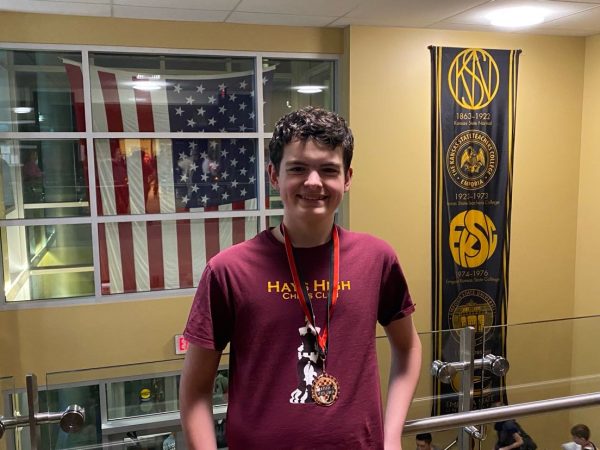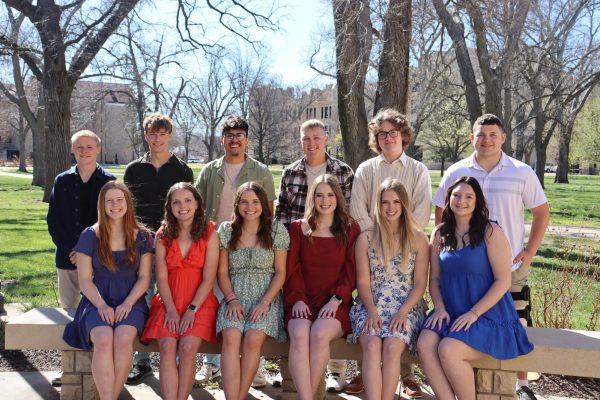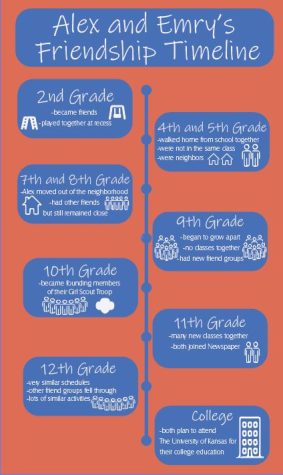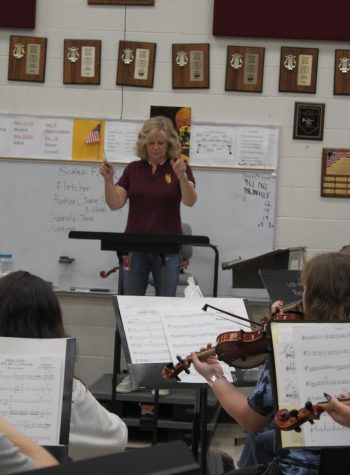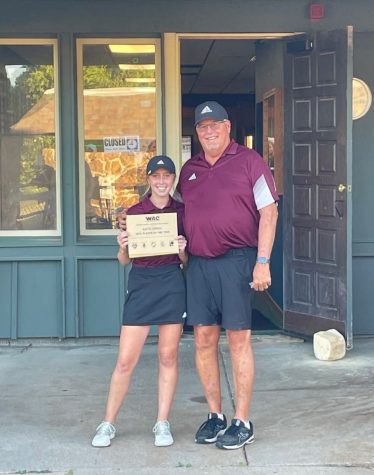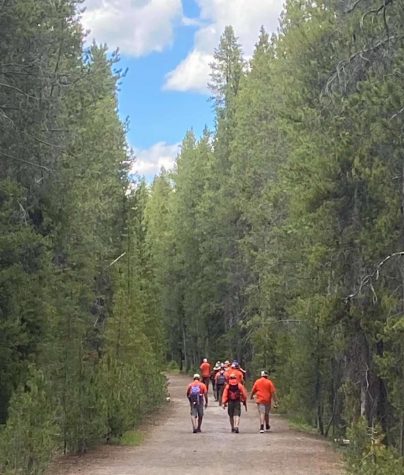Sleep Center invites Psychology class to facility
Instructor Matt Brooks’s Psychology class went to the Sleep Center at the Center for Health Improvement in order to learn more about the importance of sleep.
The lesson was held by Bryan Noone, a manager of the Sleep and Neurodiagnostic Institute at Hays Med.
“By the time you reach your 60th birthday, you should have been asleep for 20 years of your life,” Noone said.
In fact, according to the National Center of Sleep Disorders Research, on average, a person spends a total of 227,468 hours, or one-third of their entire life sleeping.
Exercise, nutrition and sleep are the most important factors to living a healthy lifestyle, according to Noone.
“I tell my patients to think of their sleep cycle like they’re charging their cellphone,” Noone said. “If you plug in your phone to charge right before you go to sleep, it should be at 100 when you wake up. But if you plug in your phone for five minutes, it isn’t going to be fully charged.”
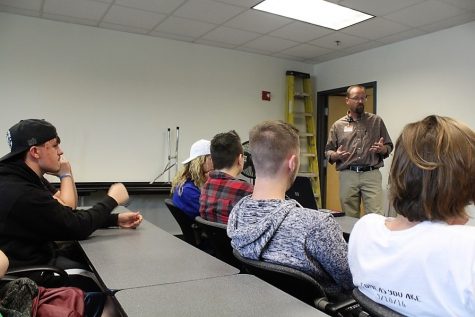
When students are scheduling their college classes, Noone suggests not taking any classes in the morning.
“Teens have a natural delayed sleep phase,” Noone said. “Many of you will experience something called an ‘afternoon dip’. People your age will tend to naturally fall asleep later in the night and want to wake up later, too.”
Noone offered tips to the class to help improve their sleeping habits.
“When you go to sleep, your room should be pitch black,” Noone said. “It triggers the melatonin in the brain. In contrast, you should expose yourself to natural light in the mornings if you have troubles waking up.”
Noone added that too much exposure to blue light from cellphones prevents sleep as well.
There are mainly two stages to sleep, but the dream stage is most important to process information.
“When you dream is when your brain moves short term memory over to your long term memory,” Noone said.
The temperature of the body lowers when a person sleeps. This decrease in temperature usually occurs between the hours of 2-4 a.m.
“Ideal sleep temperature is 60 to 65 degrees,” Noone said. “When you reach that dream state, your body naturally produces human growth hormone.”
Along with the general discussion of sleep, Noone presented information regarding different sleep-preventing diseases.
“If you snore, you have an obstructed airway,” Noone said. “Sleep apnea is when your airway is so blocked that you actually stop sleeping in the middle of the night.”
Noone also discussed sleep paralysis.
“When you’re dreaming, all the bones and muscles in your body are paralyzed,” Noone said. “This is because a dreaming brain is very active. In order to keep you from hurting yourself, your body becomes momentarily paralyzed.”
The class then went into one of the rooms the Sleep Center has to monitor patients who have trouble sleeping.
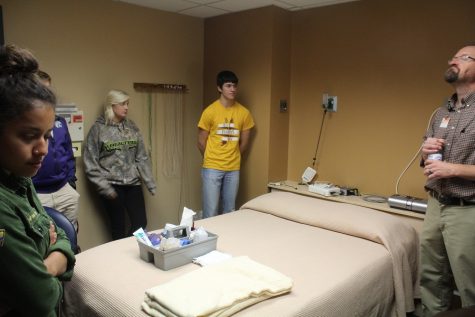
“We attach a bunch of cords to the head of the patient,” Noone said. “These cords are able to monitor the activity of the patient while they sleep. There are also infrared cameras so we can actually observe the person”
Senior Austin Gray said he thought the trip was fun.
“Our presenter had a good sense of humor,” Gray said. “It’s really easy to listen to someone talk when they’re funny.”
Junior Tana Herreman agrees.
“It was pretty beneficial,” Herreman said. “I enjoyed the video [Noone] showed us with the guy having trouble sleeping.”
17aweber@usd489.com


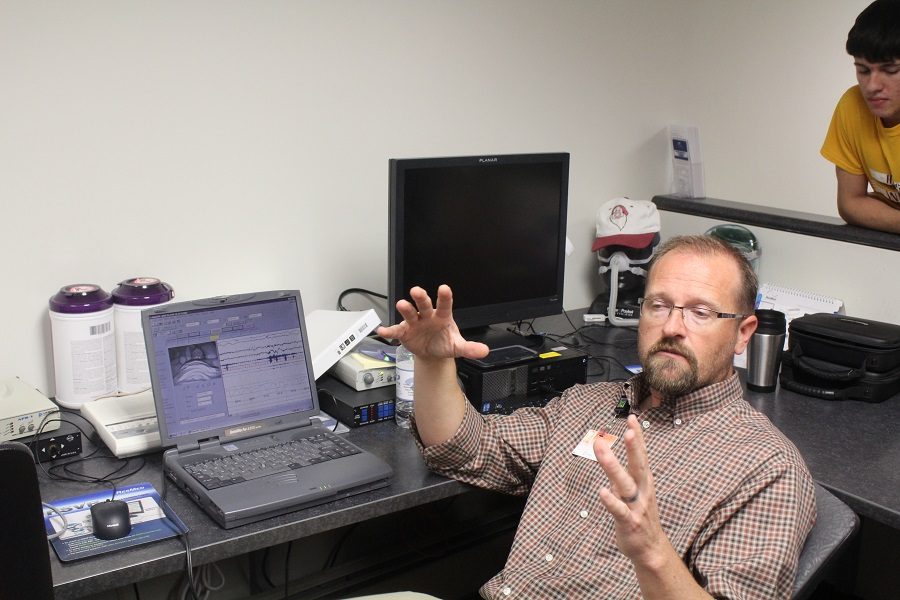

![English teacher Vanessa Schumacher likes to decorate her classroom for Christmas along with her house. Her school decorations are complete with a mini tree, as well as festive garland and lights hung around her room. “Every year I bring [the tree] on Nov. 1, or right after Halloween,” Schumacher said. “I bring it just to be funny.”](http://hayshighguidon.com/wp-content/uploads/2022/12/Christmas-Decorating-Schumacher-Tree-242x475.jpg)


